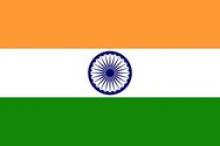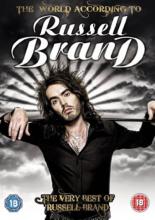2011 ICC Cricket World Cup Preview - India
India will not just enter the 2011 World Cup with a billion hopes resting on their shoulders, but they'll do it knowing that their recent tournament history leaves a little to be desired. After coming off an attritional series in South Africa, India will be looking forward to enjoying their home advantage and conditions. Pressure will be killer, though, and after some disappointing campaigns in the past, Mahendra Singh Dhoni's men will have to watch their every step.
Despite making the finals of the 2003 World Cup, India will want to put the hammering they suffered at the hands of Australia behind them. Then there was the 2007 World Cup, where their early exit caused shockwaves. In their favor this time around is the revamped group stage; while only two defeats condemned them in 2007, now India can count on picking off the Netherlands and Ireland (and probably Bangladesh) if their games against South Africa, the West Indies and England don't go according to plan.
That said, India certainly have what it takes to ensure a worst case scenario is avoided. Any team that has Dhoni, Virender Sehwag and Sachin Tendulkar will back themselves to win every time. The middle order of Virat Kohli, Yuvraj Singh, Yusuf Pathan and Suresh Raina are untested on the big stage, but they've had plenty of practice in bilateral series around the world. Of the bowlers, all eyes will be on Harbhajan Singh to make the most of the turning pitches of India, supported by Piyush Chawla and Ravichandran Ashwin making their World Cup debuts. India's pace department is in good health, too, with Zaheer Khan, Munaf Patel and Ashish Nehra to complement Harbhajan's spin.
With only two groups in this World Cup, India's Group B is as evenly placed as Group A. They will fancy themselves against the Netherlands and Ireland (but then again, Pakistan probably fancied themselves against Ireland in 2007). Bangladesh's army of slow bowlers, and dynamic hitting from Tamim Iqbal might pose India some problems, but India will be chomping at the bit to exact revenge for their upset loss to the Bangladeshis in 2007.
Even though India lost the recent ODI series against South Africa, they'll take inspiration from their home series victory against the Proteas, which featured Sachin Tendulkar's epic 200* (of course, now he'll be expected to better that every time he walks out to bat). England's Graeme Swann will be licking his lips at the idea of bowling on a spin-friendly track, but England are surely rattled (and exhausted) by their series loss to Australia, and it might be a weakness upon which India can capitalize. The West Indies will either crush India, or roll over meekly; the former scenario happened when the teams faced each other in the 2009 and 2010 Twenty20 World Championships, but Twenty20 is a very different kettle of fish.
Based on India's strength and home advantage, they should see themselves through to the semi-finals. It will make a change, after the early elimination of 2007 and failed campaigns in 2009 and 2010. South Africa and England will prove their toughest opponents in Group B, with Bangladesh and the West Indies having what it takes to give India a run for their money. That said, the Netherlands and Ireland are the two best Associate teams in the world, both known for their giant-killing on the big stage (Ireland vs. Pakistan in 2007 and the Netherlands vs. England in 2009). If India underestimate those two, will it cost them? In front of a rabid, ravenous home crowd, and with this likely being Sachin Tendulkar's last World Cup, India have more than just a world cup at stake.





